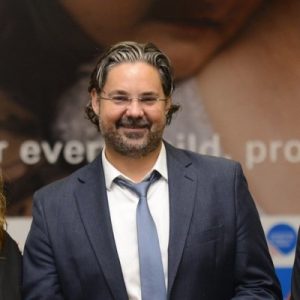
AARON GREENBERG
Aaron Greenberg joined the UNICEF Regional Office for Europe and Central Asia as Senior Child Protection Regional Advisor in July 2017, working to support governments across Europe and Central Asia on issues related to child protection. Prior to this, Aaron served as chief of child protection in Georgia for four years and then in Myanmar for four years where he directed UNICEF’s support to government and NGO partners around social welfare, child care and justice reforms. He has experience in complex emergency contexts in Eritrea, Sierra Leone, Myanmar, Syria and Iraq, and with the current conflict and refugee response in Ukraine. Aaron has also worked in the Strategic Planning Unit of the United Nations Office of the Secretary General; at Columbia University’s Center for International Organization and Security; and for local government in his hometown of New York City in the US. Aaron is an internationally recognized expert in the area of child protection system reforms, with a particular focus on alternative care and social services. He has an M.A. in International Affairs from Columbia’s School of International and Public Administration, and a B.A. in English Literature from Union College. Aaron is a proud father of twins, Lucia and Ethan.
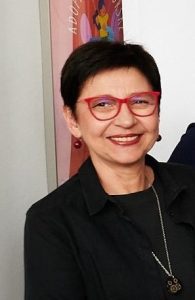
DUBRAVKA MARUŠIĆ
Dubravka Marušić is a social pedagogue with more than 30 years of professional activity dedicated to the protection and promotion of children’s rights. She gained most of her social pedagogic experience in the social welfare system, and she started her career at the Center for providing community services Zagreb-Dugave, the largest Croatian institution for children with behavioral problems, working as an educator, and then as head of the Diagnostics, Reception and Treatment Department. In 2012, she continued her journey in the then Ministry of Social Policy and Youth, in the role of Head of the Department for Policies for Children, Youth, Family and Social Policy. For the last eight years, she has been working in the civil sector and today she is the executive director of Adopta, the association for adoption support.
She organized and actively participated in the implementation of numerous expert meetings and trainings in the areas of her professional interest: prevention and protection of children at risk and with behavioral problems, protection and promotion of the rights of unaccompanied children/children in migration, the issues of disappearances of children and child victims of trafficking, support for improvement foster care and adoption, and deinstitutionalization of children placed in social welfare institutions.
Since its establishment in 1999, for a period of 10 years, she held the position of the president of the Croatian Association of Social Pedagogues, and at the end of that period, she participated in the preparation of the first draft of the Act on Social Pedagogical Activity with a working group of social pedagogues from all sectors.
For her continuous involvement in social pedagogy, in 2010 she received the Award for Contribution to the Development of Social Pedagogy from the Faculty of Education and Rehabilitation and the Croatian Association of Social Pedagogues.

JASNA ĆURKOVIĆ KELAVA
Jasna Ćurković Kelava, MD. is the director of the Children’s Home Zagreb (Home for children and young adults Zagreb) with a total of 40 years of experience in childcare, of which eight years in healthcare as a doctor (specialization in pediatrics), 1.5 years as an assistant to the Minister of Social Welfare and 32 years in social welfare as the director of the Children’s Home Zagreb.
Her professional activity and field of work include the care of children without proper care and families with children at risk, adoption and adoption of children, safe independence of young people from the system, early development support of children in the social care system and transformation of the system and development of new services for children and families.
She is the recipient of the President of the Republic of Croatia’s Order of Danica Hrvatska with the image of Katarina Zrinska for special services in social care for children.
e-mail: jasnackelava@gmail.com
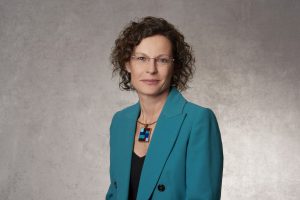
Dr. LUISA BRUMANA
M.D. Luisa Brumana is the UNICEF Representative in Croatia, as of 16 June 2024 Prior to her arrival in Zagreb, Dr. Brumana has been serving as UNICEF Representative in Argentina since 2018. Dr. Brumana has also served as Regional Health Adviser for the UNICEF Office for Latin America and the Caribbean, where she oversaw health, nutrition, WASH (water, sanitation, and hygiene) and HIV programs in the region.
Dr. Brumana graduated in Medicine and obtained a Master’s degree in Epidemiology from the London School of Hygiene and Tropical Medicine (United Kingdom). In 1998 she joined UNICEF in Angola and worked briefly for various humanitarian and development institutions in Eritrea and Sri Lanka. She continued working at UNICEF in 2004 as a Maternal and Child Health Officer and HIV/AIDS Specialist in UNICEF Vietnam and then in UNICEF Mozambique.
Dr. Brumana is of Italian nationality, married and has three children. In addition to Italian, she speaks English, Spanish, French and Portuguese. In her free time she likes to travel, outdoor activities, pilates, reading and dance.
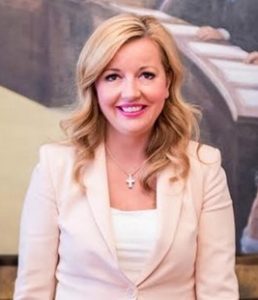
MARGARETA MAĐERIĆ
Margareta Mađerić is the State Secretary in the Ministry of Labour, Pension System, Family and Social Policy. She has held the position of the State Secretary in the ministry responsible for social welfare for several years, and in this mandate, she oversees social policy aimed at protecting and promoting the rights of children and victims of violence, having experience in the field of protection and promotion of the rights of vulnerable groups. Her political, professional and civil activism is aimed at the jmost vulnerable groups, especially children, young people and victims of domestic violence, and is primarily reflected through proactive action in various institutions, initiatives and bodies. She is the President of the Council for Children, which was established for the purpose of efficient implementation of the Convention on the Rights of the Child and is a member of the Working Group for the preparation of the National Action Plan for the implementation of the United Nations Security Council resolution on Women, Peace and Security for the period from 2019 to 2023. She is the deputy president of the National Team for the suppression and fight against violence against women and domestic violence.
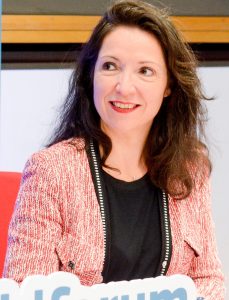
MARIE-CÉCILE ROUILLON
Marie-Cécile Rouillon has been the European Commission’s Coordinator for the Rights of the Child, in the Directorate-General for justice and consumers, since March 2022. She is responsible for the implementation of the EU Strategy for the Rights of the Child and for mainstreaming children’s right across EU policies. She is closely liaising with children’s rights civil society organisations and stakeholders.
She has worked at the European Commission since 2006 on challenging files, notably in the areas of Home Affairs and Migration (e.g., Pact on migration and asylum, interoperability of EU information systems, support to Italy and Greece), Employment & Social inclusion (i.e., EU Strategy for persons with disabilities), Research & Innovation (in partnership with the European Investment Bank), and Education & Culture. Graduated from Sciences Po. Paris, she started her career in the management of international events in Europe and in Japan.

MARINA AJDUKOVIĆ, Prof. Dr. Sc.
Prof. dr. sc. Marina Ajduković, PhD, has worked for more than 35 years as a professor at the Study Center for Social Work at the Faculty of Law in Zagreb. She is a long-time associate of UNICEF in advocating the well-being of children. From 2006 until today, she has led three projects funded by UNICEF, in cooperation with the ministry responsible for social welfare. The outcomes of these projects have visibly and significantly raised the level of professional work in the field of protection of the well-being of children growing up in risky circumstances: “Prevention of separation and early intervention with families at risk” (2008-2009), “Strengthening the capacity of the social welfare system to implement and monitor measures for the protection of the rights and well-being of the child under the jurisdiction of the social welfare center” (2013-2015) and “Systematic support to families with children: Assessing and Reducing Risks to Children’s Well-Being” (2017-2020). The key outcomes of these projects are instruments for assessing the safety and developmental risks of children and standardization of procedures for evaluating the outcomes of child protection cases in the social welfare system.
In cooperation with UNICEF, she led the scientific research project Subjective wellbeing of children (Children’s World: The International Survey of Children’s Well-Being – ISCWeB) (2018-2020). She is the author and/or editor of five publications published by UNICEF.
Prof. dr. sc. Marina Ajduković encouraged the development of the first Code of Ethics for Research with Children in the Republic of Croatia, which was adopted in 2003 by the Council for Children of the Republic of Croatia. After the adoption of this Code, she continuously encouraged, but also critically evaluated its application, which resulted in the creation of a revision of the Code in 2021, of which she is a co-author.
For her work in the field of child protection and welfare, she received the Annual Award of the Parliament of the Republic of Croatia for promoting the best interests of children in public care (2009) and the Lifetime Achievement Award of the Parliament of the Republic of Croatia for the promotion of children’s rights (2019).
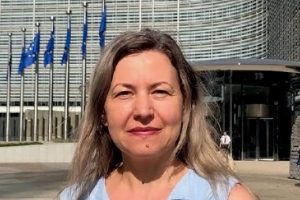
RALUCA PAINTER
Head of unit, Labour market, Education, Health and Social services, Directorate General for Structural Reform Support (DG REFORM), European Commission.
Raluca Painter is the Head of unit of the Labour market, Education, Health and Social services unit of the Directorate-General for Structural Reform Support (DG REFORM) of the European Commission. The unit supports Member States, through the Technical Support Instrument, to design and implement reforms as part of their efforts to support job creation and sustainable growth. Previously, Raluca worked 13 years in banking and financial services policy in the Directorate General for Financial Stability, Financial Services and Capital Markets Union (DG FISMA) of the European Commission. Raluca served as deputy and acting Head of unit of the Communication unit of DG FISMA. She worked on Banking Union, a key policy which contributed to restoring financial stability after the financial crisis through the establishment of a new institutional architecture for dealing with banks in the euro area and she was team leader for the Capital Markets Union initiative. A lawyer by training, member of the Paris bar, Raluca joined the Commission in February 2008.

RAREȘ PETRU ACHIRILOAIE
Rareș Petru Achiriloaie holds the position of President with the rank of State Secretary at the National Authority for the Protection of Children’s Rights and Adoption (NAPCRA) in the Government of Romania since the 7th of November 2023. NAPCRA is a central authority with a regulation role in all aspects regarding the alternative care system for children, the rights of the child, as well as adoptions.
Rareș Petru Achiriloaie graduated with a Bachelor’s Degree in Politics and International Relations from SOAS, University of London, having also taking part in an exchange programme at Sciences Po Paris for one year. He continued his academic journey with a Master’s Degree in Communication and Public Relations from the National University of Political Studies and Public Administration in Bucharest.
Previous work experiences include a diplomatic role within the Ministry of Foreign Affairs (suspended during his mandate as State Secretary) and numerous technical and advisor roles for State Ministers, State Secretaries, Parliamentary Committee Chairs and Members of Parliament at public institutions such as the Ministry for Romanians Abroad, the Ministry for Economy, Entrepreneurship and Tourism and the Chamber of Deputies.
At NAPCRA, Rareș Petru Achiriloaie based his management strategy on 4 pillars: (I) Projects and public policies; (II) Collaboration and Transparency; (III) Management and public administration; (IV) International relations. Notable achievements include:
- The successful conclusion of Team-Up, the largest externally funded social services project in Romania’s history, which trained over 11,000 maternal assistants.
- Reforms for the procedures and criteria for attesting foster carers in Romania.
- Coordinating the European Child Guarantee (ECG) at the national level. The ECG us an action plan set to reduce the number of children at risk of poverty or social exclusion by 500,000 until 2030, with Romania being the first EU Member State to submit the Biennial Report to the European Commission.
- Election in the Council of Europe’s Steering Committee for the Rights of the Child (CDENF) Bureau. NAPCRA’s president was elected in May 2024 to this key intergovernmental body.
- Initiating the reorganization of the National Authority for the Protection of Children’s Rights and Adoption.
- Implementing an internal digital system.

SANJA HELFRIH
My name is Sanja Helfrih, and I hold an MA degree in Social Work. My professional journey began with preschool teaching at Vrbik Kindergarten, after which I moved to the Turopolje Correctional Institution, where I completed my internship working as an educator. In 1998, I was employed at the Samobor Social Welfare Center, where, having worked in all departments, but primarily in the field of child, youth, and family protection, I gained an abundance of professional and life experience. In 2020, I became the director of the Center and held this position for four years. I am currently employed at the Central Service of the Croatian Institute for Social Welfare in the Department for Human Resources Management and Development, specifically in the Service for Professional Development and Training. Throughout my career, I have participated in panel discussions organized by various collaborating institutions and associations, and I have conducted training and professional development sessions for colleagues within the social welfare system and external collaborators.
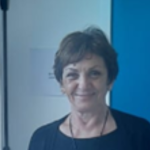
ŠTEFICA KARAČIĆ
Štefica Karačić, a social worker, has been the president of the Croatian Association of Social Workers since 2009. After 45 years of working in the field of health and social welfare, she retired in 2022. For more than 20 years, she managed social welfare centres and a social welfare home.
Throughout her professional career, she continuously pursued her professional development, gaining additional knowledge and skills in areas such as communication, group social work, mental health protection, prevention and treatment of all forms of addiction, protection of victims of domestic violence and human trafficking, psychosocial treatment of perpetrators of violence, protection of at-risk children and families, social mentorship, change management, crisis management, assessment, and individual planning in social work.
As the president of HUSR (Croatian Association of Social Workers), she has led various projects aimed at strengthening the integrity and development of the social work profession, promoting social justice, and protecting the rights of particularly vulnerable social groups and their position in society. Over the past two decades, she has been actively involved in programs designed to empower social workers, with the goal of raising the standards of the profession and the care system for children, families, and other individuals and groups at risk of social exclusion.
She has advocated for the regulation of the profession through the adoption of the Social Work Act and the establishment of the Croatian Chamber of Social Workers, where she has been continuously active since its foundation.

STELA GRIGORAȘ
Stela Grigoras is with the UNICEF Regional Office for Europe and Central Asia since March 2018, supporting UNICEF country offices and governments to implement child protection reforms. Between 2020-2023, Stela coordinated the implementation of the European Commission’s Child Guarantee Pilot and technical support projects in a number of EU Member States. In the period of 2016-2017 Stela Grigoras worked as the Minister of Health, Labour and Social Protection in Moldova, leading and implementation of important reforms in child and social protection, social services, employment and health care.
Between 1998 and 2016 she worked for the UK NGO EveryChild, providing technical support to national and local authorities to reform alternative care, child protection, social protection in Moldova, Europe and Central Asia and beyond. In this period, she also served as board member, deputy-chair and chair of the International Foster Care Association.
Stela Grigoras is a medical doctor by profession, holds a PhD degree in sociology, and has undergone a number of international qualifications, including in social work.
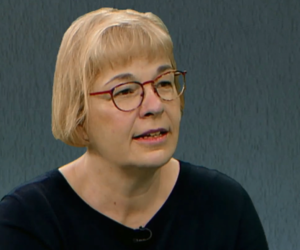
ALEKSANDRA KORAĆ GRAOVAC, Prof. Dr. Sc.
Aleksandra Korać Graovac is a full-time professor at the Department of Family Law at the Faculty of Law in Zagreb and is currently the head of the Institute for Civil Law and Family Law.
She teaches several courses at the Faculty of Law in Zagreb, and from 1995 to 2006 she taught the course Family Law in Osijek. She teaches at several postgraduate scientific and specialist studies at the University of Zagreb and at the Central European Academy in Budapest.
She was a member of numerous working groups of the Government of the Republic of Croatia: Working Group of the Government of the Republic of Croatia for Harmonization of Croatian Legislation with the European Convention (1996-1998), Committee of the Government of the Republic of Croatia for the Monitoring of the European Convention (since 1998), Working Group for Harmonization of Croatian Legislation with the European Social Charter (1998-2000), Working group of the State Institute for the Protection of Family, Maternity and Youth for the preparation of the national family policy (2001), Working group for the preparation of the Family Law (1998, 2003, 2007 and 2015), and the Working Group for the preparation of regulations on civil status of citizens (2012).
She is a member of the International Society of Family Law, where she was also a member of the Executive Committee (2006-2008). In the Council of Europe, she was vice-president of the Committee of Experts on Family Law (2006-2008).
She was active in the bodies of the Council of Europe: in the European Commission against Racism and Intolerance; in the Committee for Legal Cooperation of the Council of Europe in 2011 and 2012, when preparing the recommendations of that body; and in the ad hoc Committee of Experts for the preparation of the Recommendations on resolving parental disputes on child relocation.
She is a member and founder of the Croatian Academy of Legal Sciences.
She is a scientific advisor to the Constitutional Court, she collaborated with the Judicial Academy in creating materials for workshops intended for judges, in several mandates she was a member of the expert committee for social sciences for awarding the State Prize for Science, she was a member of the Committee for Humanities and Social Sciences of the Croatian Science Foundation, she is the president of the Committee for determining the criteria and confirmation of election to the positions of the Council for Humanities and Social Sciences, and the Committee for determining the criteria and confirmation of the election to the positions of the Senate of the University of Zagreb, and a member of the Parent Committee of the Ministry of Science for the field of law.
She has been a member of the National Commission for Medically Assisted Reproduction since 2018.
She is the co-author of three university textbooks that have gone through several editions, commentaries on the Family Law, and dozens of professional and scientific papers.
She has collaborated with UNICEF in several projects.
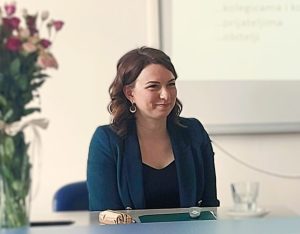
ANDREA ĆOSIĆ, Dr. Sc.
Social pedagogue, employed at University of Zagreb Faculty of Education and Rehabilitation Sciences. Her focus in teaching is on communication and social skills, alternative care for children and youth and assessment of needs of young people with behavior problems. She is involved in several research and professional projects in the field of alternative care and children’s rights. In 2024, she completed her doctoral thesis at the University of Zagreb, Faculty of Education and Rehabilitation Sciences, on the topic of understanding the role of peer group in subjective well-being of adolescents in care. She is a Board member of International Network on the Participation of Children and Youth in Alternative Care (INPAC).
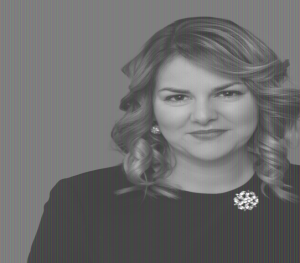
ANITA BARIŠIĆ, Dr. Sc.
Ph.D.Sc. Anita Barišić is a social worker, supervisor of psychosocial work and a specialist in psychotherapy in the field of transactional analysis. She completed her post-graduate doctoral studies in Social Work and Social Policy, Social Work study, at the Faculty of Law of the University of Zagreb in 2023. She is continuously improving his professional skills, and highlights the completed education for the use of skills and techniques of Play therapy in working with children (Proventus Center), the Interdisciplinary professional training program in the field of protection of the procedural rights of the child and communication with the child (Faculty of Law, Osijek) and the Pedagogical-psychological-didactic-methodical training (Faculty of Philosophy Osijek). She is a licensed trainer for family outreach workers providing professional help and support in childcare and for family outreach workers providing intensive professional help and supervision of childcare.
Until 2020, she was employed as a social worker in the social welfare system (Regional Office of the Croatian Institute for Social Work Osijek and Center for Community Services Klasje Osijek), where she worked with children, youth and families. Since 2020, she has been working as an assistant at Josip Juraj Strossmayer University in Osijek, Faculty of Law, Osijek, on the Social Work Study program.
She participated in numerous scientific and professional conferences and projects focused on the protection of children, youth and families as an educator and associate supervisor. She is currently leading the Internal Project at the Faculty of Law in Osijek IP-PRAVOS-24 entitled “Stress, burnout and mental health of helpers (foster parents)”.
She is a member of the Association of Social Workers of Osijek-Baranja County, the Croatian Chamber of Social Workers, the Croatian Society for Supervision and Organizational Development, the Association of Transactional Analysts and the EATA-European Association of Transactional Analysis.
She is the owner of the business “Accepta”, where she provides individual and group counselling and supervision of psychosocial work.
In 2024, she won the Osijek-Baranja County Award in the field of social welfare for notable results in work with the most vulnerable groups of society and contribution to improving the quality of work of employees in the field of health and social welfare in 2023.
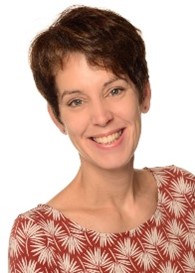
ANJA TELTSCHIK
Anja Teltschik, Monitoring and Evaluation Specialist – Child Protection, UNICEF Europe and Central Asia Regional Office (ECARO). Anja is providing technical leadership, guidance and quality assurance in the area of monitoring, evaluation, data improvement and analytics in support of UNICEF’s engagement on child protection and social exclusion in the region. She has a diploma in social work, has been trained as a family therapist, and has a master’s degree in public health. She works in development and emergency contexts. Her work experience ranges from the provision of community-based child protection and social services to being a senior global adviser and a regional director of international NGOs and working as a senior consultant and staff for several UN agencies and national governments. In her current role, she has worked on the Task Force on Statistics on Children of the Conference of European Statisticians that developed the 2022 Guidance on Statistics on Children. She has also been instrumental in organizing the first-ever UNECE/UNICEF 2024 Expert meeting on statistics on children, and is a member of the Global Task Force that is supporting the development of the International Statistical Classification of Alternative Care for Children. She is further leading the regular reviews and revisions of the TransMonEE regional child protection indicators and metadata, the initiative to strengthen alternative care administrative data systems in the region, and she has led the monitoring and data component of Phase III of testing the European Child Guarantee in EU member states and the DataCare initiative.
E-mail: ateltschik@unicef.org
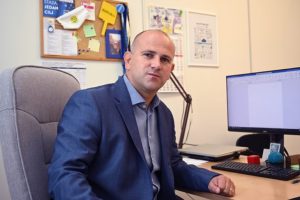
DARIJO JURIŠIĆ
Darijo Jurišić, a lawyer and university specialist of management of local and regional self-government development, was appointed Ombudsman for Persons with Disabilities in March 2024. Prior to this, in 2016 he became the Deputy Ombudsman for Persons with Disabilities. He gained his work experiences in the State Administration Office in the Zagreb County, the Ministry of Economy, Labour and Entrepreneurship, the Ministry of Labour and Pension System and the Ministry of the Sea, Transport and Infrastructure. By working in different state bodies, he gained significant experience in the area of implementation and protection of human rights. Over the last 12 years, he has been dealing with the topics that are particularly important for children with developmental difficulties and persons with disabilities. He is a member of different expert and working groups and takes part in a number of domestic and international events.

Dr. JONATHAN LEIPOLDT
Dr. Jonathan Leipoldt is a senior lecturer and researcher at the Programme Group Developmental Psychology of the University of Amsterdam. His primary research interests include social climate perceptions, quality of life and psychopathology of youth living in (therapeutic) residential youth care (TRC). In addition, he studies the complexity of high-school-dropout, identifying potential predictors and intervention effectiveness of a school-dropout programme. Jonathan also studies the role of the social environment in the link between psychopathology and adolescent identity formation, where he serves as a co-supervisor for a PhD student. Jonathan has a strong interest in quantitative methodology, specifically structural equation modelling and latent class analysis. He uses these methods in his studies to investigate hoe young people living TRC can best be served in their various needs.
Next to teaching and research, Jonathan works as a counsellor for students. He advises students studying with (emerging) psychopathology and he provides interventions for keeping or getting students back on track in their studies. Before working as a counsellor, Jonathan worked at an in-patient psychiatric clinic for adolescents with personality problems.

EMILY DELAP
Emily Delap has over 25 years’ experience in child protection, with a particular specialism in alternative care. A sociologist and researcher by background, Emily has led numerous evaluations and research and technical assistance projects. Emily currently works for the consultancy firm Child Frontiers where she carried out evaluations of UNICEF care reform programmes in Croatia and Bosnia and Herzegovina, and of the UNICEF country programme in Uzbekistan. Emily currently runs UNICEF’s regional learning platform on care reform in Eastern and Southern Africa. She is leading a three country project for the Global Services Workforce Alliance that brings the perspectives of care experienced individuals to social work capacity building. She has an MSc. in Social Policy from the London School of Economics.

FILOMENA PEREIRA
Master’s degree in Special Education, University of Lisbon. Professor of Inclusive Education and Disability Inclusion in Higher Education Institutions. Former Director of the Special and Inclusive Education, Guidance and Psychologist Unit, Portuguese Ministry of Education. Since 1997 as Director of the Special Needs and Inclusive Education Unit, involved in legislation, policy papers, teacher training programmes and guidelines for practice. Author and co-author of several publications on the thematic of special educational needs and inclusive education. Participation in various EU working groups on Special Needs and Inclusive Education. For 28 years, Representative Board Member at the European Agency for Special Needs and Inclusive Education. For the last 15 years international consultant to the World Bank and UNICEF on the implementation of policies on inclusive disability, inclusive education, and care services provision for children with disabilities. Member of OECD’s Strength through Diversity programme, Analysis and Review of Inclusive Education in Portugal, and in Designing a national system to monitor the implementation of Portuguese legislation on inclusive education, within Structural Reforms Support Programme, DG Reform, European Commission.
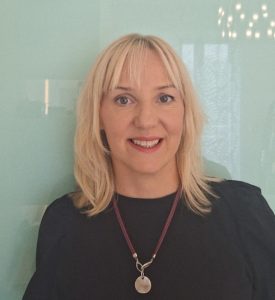
GABRIJELA RATKAJEC GAŠEVIĆ, Prof. Dr. Sc.
Associate Professor, Ph.D. Gabrijela Ratkajec Gašević, employed at the Department of Behavioral Disorders, Faculty of Education and Rehabilitation, University of Zagreb. Social pedagogue, counseling psychotherapist of reality therapy, participant of psychotherapy education in group analysis. Currently, in addition to teaching and scientific activities, she is the head of the Teaching and Clinical Center at the Faculty of Education and Rehabilitation. In 2013, she received her doctorate at the Social Work Study Center of the Faculty of Law, University of Zagreb, on readiness for change and counseling treatment of adolescents with behavioral problems. Her areas of scientific and professional interest include psychosocial counseling of children, young people at risk and their parents, approach to work with vulnerable groups of young people, work with families of beneficiaries with behavioral problems, capacities for behavior change, improvement of skills through group interventions, biographical work with children and young people in out-of-family care and violence in young people’s relationships. She has twenty years of experience in working with young people with behavioral problems through psychosocial counseling and implementation of group programs with adolescents and parents of young people with behavioral problems in different support and assistance systems. She has published her research and findings in over 30 scientific and professional papers and books. She participated as a presenter, member of the organizational or program committee at numerous domestic and international scientific and professional meetings.
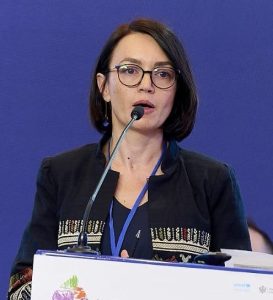
INA VERZIVOLLI
Ina Verzivolli serves as the Child Protection Specialist at UNICEF’s Regional Office for Europe and Central Asia, supporting over 25 countries in justice access and violence prevention. Previously, she coordinated Phase III of the European Child Guarantee to combat child poverty. As Director of the Albanian State Agency on Child Rights and Protection, she led significant national child protection reforms. On the international stage, Ms. Verzivolli served as Vice Chair of the Lanzarote Committee, and Chairperson of the Ad-Hoc Committee on the Rights of the Child of the Council of Europe, among others. She holds a MSc. in International Development from the Graduate Institute of Geneva.
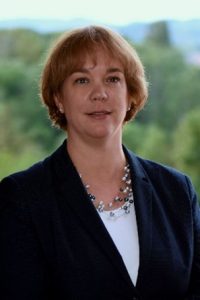
IRENA MAJSTOROVIĆ, Prof. Dr. Sc.
Prof. Irena Majstorović, PhD, is a professor at the Department of Family Law of the Faculty of Law, University of Zagreb. She graduated from the same Faculty in 1997, received her master’s degree for the thesis “Marital Agreement” in 2005 and obtained her PhD with the thesis “Harmonisation and Unification of European Family Law – Foundations, Principles and Controversies” in 2009.
She has been the deputy head of the Postgraduate university interdisciplinary specialist study programme on children’s rights and a member of the Study Programme Council since 2011. She has acted as the coordinator for students with disabilities at the Zagreb Faculty of Law since 2011. She was the executive editor of the Journal of the Zagreb Faculty of Law from 2004 to 2011 and chief editor of the Croatian Academy of Legal Sciences Yearbook from 2017 to 2021.
As a researcher, she took part in projects carried out with the support of the Faculty of Law, University of Zagreb and the Ministry of Science, Education and Sport, as well as in the international CREAN – Children’s Rights Erasmus Academic Network project and the programme on the protection of unaccompanied children displaced from Ukraine carried out by the Faculty of Law in cooperation with the UNICEF Office in Croatia.
She was a member of working groups for drafts of acts relevant to family law (preparation of a proposal for the draft of the Family Act (2016 and 2023), Family Counselling / Family Centres Act (2008), Act on the Ratification of the Convention on Jurisdiction, Applicable Law, Recognition, Enforcement and Cooperation in respect of Parental Responsibility and Measures for the Protection of Children (2009), Act on the Implementation of the Convention on the Civil Aspects of International Child Abduction (2016), Act on the Implementation of the Council Regulation (EU) 2019/1111 of 25 June 2019 on Jurisdiction, the Recognition and Enforcement of Decisions in Matrimonial Matters and the Matters of Parental Responsibility, and on International Child Abduction (2021)).
She is the author of three monographs and the author or a co-author of dozens of scientific and professional papers. She regularly gives presentations at international and domestic scientific and professional conferences. She is a member of the International Society of Family Law, Croatian Society for Civil Law Sciences and Practice and the Croatian Association for Family Mediation.
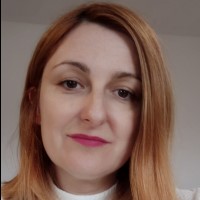
IVANA MAUROVIĆ, Assoc. Prof. Dr. Sc.
Assoc. prof. Ivana Maurović, PhD is a social pedagogue working at the Department of Behavioural Disorders of the Faculty of Education and Rehabilitation Sciences at the University of Zagreb. She is one of the initiators and head of the Student Support and Career Development Centre, an organisational unit at the Faculty of Education and Rehabilitation Sciences. In 2015, she earned her doctoral degree from the Social Work Study Centre of the Faculty of Law, University of Zagreb, by defending her dissertation “The resilience of adolescents in children’s homes”. The same year she completed her integrative psychotherapy education. The areas of her scientific, teaching and professional interests include: the concept of resilience in children and young adults with behavioural problems and systems surrounding them (family, community, experts), trauma knowledge-based interventions, biographical work with children in out-of-home care, adolescent dating violence and professional development of professional helpers, especially social pedagogues. She published her research and practical knowledge in over 30 scientific and professional papers. She participated in and/or led over 15 scientific and professional projects, for example: “STEP FORWARD – programme for improving assessment and interventions for children and youth with behavioural problems”, “Specific characteristics of families at risk: contribution to planning of complex interventions (Croatian Science Foundation); “Resilience of experts in different professions”; “Well-being and mental health of scientists at the beginning of their career in Croatia: longitudinal study (Croatian Science Foundation). She is a co-editor of the thematic issue “Mental Health of Vulnerable Groups: Predictors, Mechanisms, and Interventions” of the journal Frontiers in Psychiatry. As a speaker, member/president of the organising and program committee, she participated in numerous domestic and international scientific and professional conferences. She has a 10-year experience in evaluation of professional projects with different government organisations as project developers. She is currently leading the implementation of independent evaluation of family associate activities. She is continuously active and in direct contact with beneficiaries, previously as an educator in a children’s home, and currently thorough her engagement at the Faculty, where she provides counselling to children, youth and families at risk as part of the Educational Counselling Office of the Centre for Rehabilitation at the Faculty of Education and Rehabilitation Sciences.
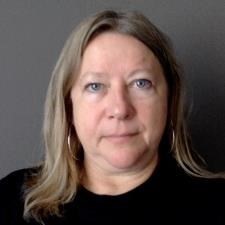
JOANNA ROGERS
Joanna Rogers holds an MSc in Social Work from Ersta Skondal University College in Stockholm and has over 30 years of experience in child protection systems strengthening, social protection policy and programmes, disability inclusion, social services development and social service workforce strengthening as well as child care systems reform. She has extensive experience working with UNICEF country and regional offices, national and local governments, Asian Development Bank (ADB), and NGOs to plan, implement and monitor national and sub-national programs in disability inclusion, social services development, child protection and social protection. She has undertaken assignments for UNICEF ECARO and EAPRO on social service workforce strengthening, public finance for children, and supported ADB HQ in Manila to develop a strategic framework for disability inclusion. She is currently providing lead technical support on alternative care for children for UNICEF ECARO on Technical Support Instrument projects in Slovakia and Andalusia, and for UNICEF Turkmenistan and was the lead author on the TransMoNEE Analytical Report on alternative care in the ECA region ‘Pathways to Better Protection’ (2023).

KATJA VRHUNC PFEIFER
Katja Vrhunc Pfeifer (born 14 June 1991 in Ljubljana) is an expert in the field of educational sciences and social pedagogy. She graduated in law from the European Faculty of Law at the University of Nova Gorica, and then obtained her Master’s degree in social pedagogy at the Faculty of Education at the University of Primorska, where she also obtained her PhD in educational sciences.
Her professional work focuses on crisis interventions in educational institutions, especially in the field of treatment of children and adolescents with emotional and behavioural problems. Katja Vrhunc Pfeifer is actively involved in research projects as an assistant professor at the Faculty of Education at the University of Primorska, where she is involved in the modernisation of pedagogical study programmes and in the phenomenological and aetiological analysis of emotional and behavioural disorders. She also conducts tutorials and seminars with students, coordinates the social pedagogical practice and is a co-mentor for the final theses.
Her scientific and professional work has contributed significantly to the development of crisis intervention in Slovenia. Two of her important works stand out:
- The scientific monograph “Crisis interventions in educational institutions (expert centres)” (2021.) In collaboration with Mitja Krajnčan, Vrhunc Pfeiferjeva published a work that offers guidelines for dealing with crisis situations in institutions for the education of children and adolescents with emotional and behavioural disorders.
- PhD thesis “Competence of crisis intervention of educators in specialist centres” (2023, PhD thesis: This thesis explores the competences of educators in crisis interventions, which provides insight into the challenges they face.
In addition, it also deals with specific research on self-harm behaviour, teamwork in education and the impact of crisis situations on children and adolescents. Her work focuses on improving educational approaches and more effective crisis resolution in educational institutions.
LAURA PARKER
Laura Parker is a human rights professional, with experience in the fields of forced displacement, statelessness and mixed migration. She has worked for civil society organisations, UNHCR and IOM in Africa, Latin America, the MENA region and Europe, on protection of refugees’ and migrants’ rights, legal reform and policy development, legal and humanitarian assistance, alternatives to detention, child protection, trafficking, and legal identity documentation. She currently heads the protection team at UNHCR Croatia, focusing on asylum, integration and statelessness. She holds an MA in Human Rights Law from the School of Oriental and African Studies (SOAS), University of London, and a BA in Modern Languages from the University of Cambridge.
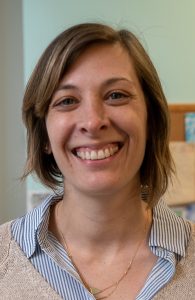
LEAH JAMES
Leah James is a Mental Health and Psychosocial Support (MHPSS) Specialist in the Child Protection section at the UNICEF Europe and Central Asia Regional Office, based in Budapest. She has a PhD in Social Psychology and Social Work and a master’s degree in Clinical Social Work from the University of Michigan. Leah has 15 years of experience providing MHPSS technical support in INGOs and UN agencies in both humanitarian and development settings, including Ukraine, Iraq, Lebanon, Jordan, Colombia, Nepal, and Haiti. Leah is also a Research Associate at the Institute of Behavioral Science at the University of Colorado, Boulder and has extensive experience conducting intervention research focused on MHPSS in emergency settings.
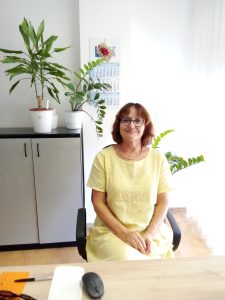
LJILJANA ROGIĆ ŠNEPERGER
Ljiljana Rogić Šneperger, MSW, a supervisor for psychosocial work. She is employed at the Croatian Institute for Social Work in the Sector for Professional Support and Professional Work Improvement in the Service for Support to Foster Care, Social Services and Compensations. She worked directly with foster parents for a number of years as a member of the City of Zagreb Foster Care Team. She supervises experts in the social care system. She also supervised experts in the justice system, foster parents and others.

MAJA LAKLIJA
Maja Laklija is a social worker who, in the scientific and teaching position of a full professor, currently leads classes at the undergraduate and graduate studies in social work and participates in teaching at the postgraduate specialist and doctoral studies at the Faculty of Law, Social Work Study Center of the University of Zagreb. She is a licensed supervisor and meta-supervisor. Since 2014, she has been the executive editor of the journal Socijalne teme (Social topics): Journal of social work issues and related sciences, and since March 2020 she has been a member of the editorial board of the Ljetopis socijalnog rada (Annals of Social Work) – editor of the area of qualitative research. She links her scientific and professional interest to social work with families, children in care, with special emphasis on foster care for children. So far, she has participated in numerous international and domestic scientific and professional conferences and gatherings. She is the author of over 50 scientific and professional articles.
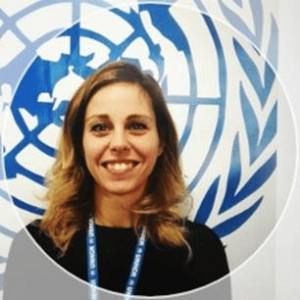
MARIA ELEONORA BENINI
Maria Eleonora Benini is a Child Protection Specialist at UNICEF, focusing on alternative care and guardianship. With over eight years of experience at UNHCR in Child Protection, Gender-Based Violence, and Community-based Protection, she has coordinated humanitarian responses across multiple regions, including the Mediterranean, Latin America, Central America, and Central Europe. She has held national, regional, and global roles, providing technical assistance to UN systems and government counterparts. Maria Eleonora holds an LLM in Public International Law from King’s College London and a Laurea Magistrale in Giurisprudenza from the University of Bologna with honors. She is fluent in four languages and is an active participant in global protection initiatives.
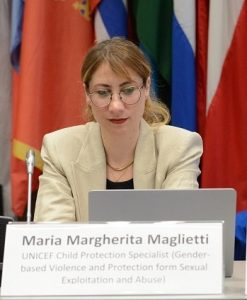
MARIA MARGHERITA MAGLIETTI
Maria Margherita Maglietti joined UNICEF’s regional team for Europe and Central Asia in December 2022 as a gender-based violence (GBV) specialist, based out of Budapest. Her main focus is on accelerating the GBV portfolio as a part of emergency responses in Europe and Central Asia. Ms. Maglietti also works to strengthen work around the protection from sexual exploitation and abuse and supports the regional office’s broader agenda on children on the move. She is driven by a strong commitment to girl’s and women’s empowerment and protection and has accumulated 15 years of work experience in Europe and the Middle East. Ms. Maglietti worked for many years with UNFPA as a GBV coordinator and programme specialist in Jordan and Turkiye, before joining UNICEF in 2019 as a GBV specialist in Italy. From there she also coordinated a multi-country programme including Bulgaria, Greece and Serbia. She obtained her MA in Human Rights from the University of Essex and has a political science degree from the University of Bologna.
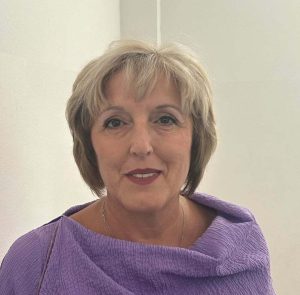
MARIJA IGREC
I was born in 1970 in Varaždin, where I still live today. I completed my secondary education in the SC “Gabrijel Santo” High School, administrative and legal track, and after that I also completed the Secondary Medical School and became a physiotherapy technician.
I have been a foster parent for more than 20 years to children without appropriate parental care, where I find my purpose, joy and satisfaction.
During this period, I have fostered 16 children. I have taken care of babies, children with developmental difficulties, as well as of children of national minorities.
Apart from being a foster parent, I have two adult daughters, Dora and Martina.
I am currently the president of the Forum for Quality Foster Care, as well as the president of the Zipka Association of Foster Parents to Children and Youth of the Varaždin County. I have been active in the civil society associations since they were founded (I am one of the founders of the Zipka association). Through my work, I try to raise public awareness of the importance of fostering and improve the status of both foster children and foster parents.

MARTIN PUNAKS
Martin Punaks is a Child Protection Specialist at UNICEF ECARO. He has 25 years’ professional experience in child protection, care reform and international development. He has an MA (Distinction) in the Anthropology of Development from the School of Oriental and African Studies, University of London. Martin has worked in community-based family support services in the UK and led children’s reintegration, leaving care and humanitarian programs in India and Nepal. He pioneered the campaign in Nepal for the recognition of orphanage trafficking and to prevent orphanage voluntourism. Through UNICEF Kenya he facilitated the Government of Kenya’s development of its National Care Reform Strategy. He also developed a movement building strategy for Family for Every Child, a global network of local child rights civil society organizations. More recently Martin has supported the UN Independent Expert on Albinism to develop her report to UNGA on children with albinism and the right to a family life, as well as assisting women’s organizations in Africa and Central Asia to develop culturally contextualized safeguarding policies. Martin has led training and technical support for thousands of professionals in child protection and care reform in over 70 countries, including many European and Central Asian countries. He is currently based in South London with his own family and is a passionate campaigner for the rights of children and families everywhere.
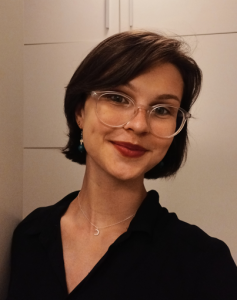
MARTINA
Martina, girl who has experienced foster care first-hand
My name is Martina and this is my ninth year living in a foster family, which motivated me to speak up about it, so children could have the best families possible.
I completed my secondary education at Rijeka Music School, Singing track, and then I decided to focus on something else. I am currently studying at the Faculty of Education and Rehabilitation Sciences, University of Zagreb, Rehabilitation track, where I am obtaining the knowledge and skills needed to work with vulnerable groups, including children and youth in the foster care system.
I want to work in all these fields, and I believe that my experience can contribute to positive changes. I want to advocate for better support, resources and opportunities for foster children and foster parents, because every child deserves to have a family.
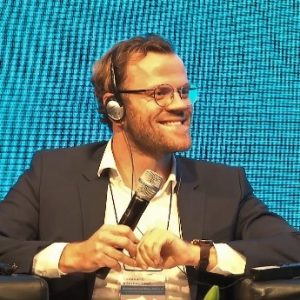
NARD HUIJBREGTS
Nard Huijbregts is the Lead Social Policy Advisor at the Economic Policy Research Institute (EPRI), a global institution based in Cape Town, South Africa. He has research and policy advisory work experience in Africa (Nigeria, South Africa, Mauritania and other countries), Europe and Central Asia (among others Croatia, Belarus and Uzbekistan) and Asia and the Pacific (China, Thailand, Fiji, Viet Nam and others), consulting for UNICEF, the Asian Development Bank, WFP, FCDO, the African Union, ILO, Save the Children and numerous other development partners and government agencies. Nard is specialized in the design, implementation and evaluation of social protection and child protection policies, programmes and systems.
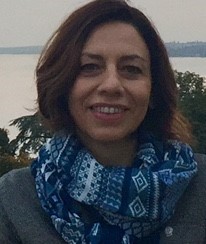
NORA SHABANI
Nora Shabani is the Education Specialist/Disability Coordinator in the UNICEF Regional Office for Europe and Central Asia Region. In this role, she leads and coordinates UNICEF work in inclusive education and supports cross-sectoral coordination on inclusion of children with disabilities, including with deinstitutionalization and childcare reforms. Nora works closely with UNICEF country teams and national stakeholders to address barriers that marginalized children, particularly children with disabilities, face in realizing their rights. She supports the implementation of innovative solutions and systemic approaches to overcome their segregation and exclusion. She has more than 25 years of working experience working also in Türkiye and North Macedonia. Nora holds a MA in Inclusive Special Education from University Roehampton, London, UK.

ROBBIE GILLIGAN
Robbie Gilligan is Professor Emeritus at the School of Social Work and Social Policy, Trinity College Dublin. He has long been active in the field of alternative care for children and young people, as researcher, social work educator, social worker and foster carer. He is also an established researcher on the lives of care experienced adults. He is a member of the Board of the European Scientific Association for Residential and Family Care, and of INTRAC – The International Research Network on Transitions to Adulthood from Care.
Robbie has contributed a chapter on the relational complexity of kinship care to the forthcoming Routledge Handbook on Child and Family Social Work Research. He is currently co-principal investigator for an Irish government funded study ‘Care Leavers – Ten Years On’ conducted by a team from Trinity College Dublin and the University of Sussex. He also served as an informal adviser to the recent OECD report on care leavers . For a full list of his publications and outputs, see https://orcid.org/0000-0002-4150-3523; these include many works focused on foster care and relative / kinship care and related policy issues.
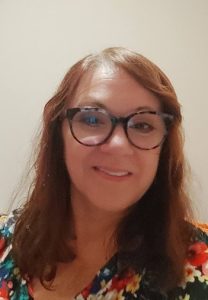
SUZANA VARGOVIĆ
Suzana Vargović, born in 1965, head of the Breza Association from Osijek, pedagogue.
I was educated in the field of social pedagogy in Switzerland, Germany, acquired practical knowledge and methods in working with vulnerable groups of young people in Australia and Germany. I am currently completing a postgraduate study in art therapy.
I have thirty years of experience in direct work with vulnerable groups, especially children and young people. As part of the Breza Association in 2001, I founded the Social Therapy Community for children and youth with behavioral problems, and in 2005 a counseling center for family and youth within the Association, which provides support to beneficiaries of the Community and their parents. I develop innovative work programs with at-risk groups of children and young people and in cooperation with Swiss organizations (individual support for children with combined disabilities, post-treatment support for young people in the process of becoming independent) providing social services aimed at empowering children and young people to overcome their difficulties and learn the necessary life skills for independence.
I participate in organizing various cultural events that encourage the inclusion of vulnerable groups of children, young people and adults so that they can participate in public life.
Together with colleagues and beneficiaries, in 2004 I started the international family pedagogical festival Land without Borders as a platform of intersectoral cooperation to promote innovative methods of working with children that encourage the development of creativity. I am in favor of a participatory model in the creation of festivals, where public events and programs are designed together with children and young people.
Through my rich experience of working with foreign organizations, I promote cooperation and the exchange of experiences working with vulnerable groups, so that we also achieved cooperation with Tahoku University in Japan, which included the Land without Borders festival as a model for international informal education of children and youth.
From 2010 to 2024, together with my colleagues, I pilot various programs, implementing 97 international projects in youth work, developing social services for people at risk of exclusion and social entrepreneurship.
From 2023, I am launching a pilot program of leave from care for foster parents in Osijek Baranja and Primorsko Goranska Counties in order to respond to the needs of foster parents.
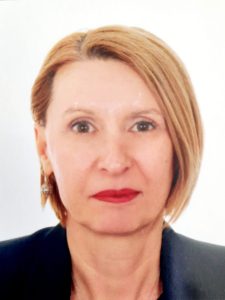
TANJA ŽAJA
Tanja Žaja, Head of the Directorate for Family and Social Policy at the Ministry of Labour, Pension System, Family and Social Policy, is a law graduate with years of experience in the social care system.
She managed the social care system computerisation and social care centres connection project and worked particularly on the protection of children’s rights through joint interdepartmental activities.
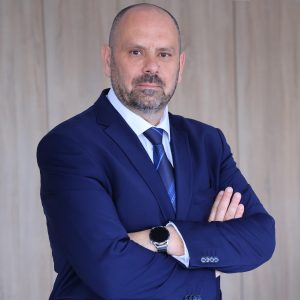
TOMISLAV RAMLJAK, Univ. Spec. Act. Soc.
Head of the Centre for Missing and Abused Children and the Centre for a Safer Internet | Expert in online child safety and permanent expert witness| Specialist study of social work.
As head of the Centre for Missing and Abused Children and the Centre for a Safer Internet, my mission is to promote the safety of children in the online and offline environment. In addition, I am a permanent expert witness in the field of child protection on the Internet and an active lecturer and educator at numerous domestic and foreign professional conferences dealing with the topics of prevention of child abuse by means of new technologies.
I am also the initiator of the 116 000 European harmonized hotline for missing children in the Republic of Croatia (since 2013) and I am an active proponent of the implementation of the AMBER alert system in the Republic of Croatia.
I am among the few experts in this field who have completed specialized education related to the forensics of material evidence of sexual abuse of children on the Internet at INTERPOL and EUROPOL. Besides educating experts, I also cooperate with relevant institutions in the field of protection of children’s rights.
I am currently studying for a doctoral degree in social work at the University of Zagreb, and I am a supervised psychotherapist.
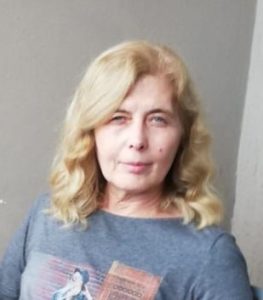
ZDENKA MALTAR
Zdenka Maltar has been employed as a social worker at the Dubrava Branch Office of the Croatian Institute for Social Welfare since 2005. She began her professional journey as a social worker at the Maksimir Social Welfare Center in 1980. Throughout her long career, she has worked in general social work, providing assistance and support to individuals in difficult financial situations, including guiding users to access rights within the social welfare system. Regarding the implementation of the SocSkrb information platform, she was a member of the expert team of the ministry responsible for training social welfare center employees on the application and use of the platform in 2013 and 2014. At social work conferences, she has delivered several presentations on various professional topics, such as “Computerization of the Social Welfare System and Standardization of Social Welfare Centers’ Work across Croatia” and “Challenges in Working with Single-Parent Families Experiencing Poverty.” Since 2023, she has taken on the role of a junior expert for training and user support in the field, related to the classification of local social benefits using the ESSPROS methodology. Mrs. Maltar actively supports the activities of various civil society organizations that provide support to people with disabilities.

CATH LARKINS
Cath Larkins is Professor of Childhood Studies, Codirector of The Centre for Children and Young People’s Participation, University of Central Lancashire and Codirector of SOCRATES (Social Care Rapid Evalution Team). She is also a consultant who collaborates with governmental institutions, civil society organisations and children and young people to strengthen children’s participation processes in Europe. She has been working with care experienced children and young people for more than 25 years, as an advocate, researcher and activist.
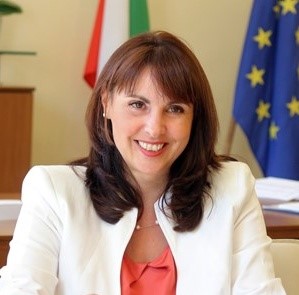
NATALIYA EFREMOVA
Nataliya Efremova has studied law at St. Kliment Ohridski Sofia University and has a Master’s Degree in Economics from St. Cyril and St. Methodius University of Veliko Tarnovo. Within the period from 2003 to 2008, she was a Director of the Programme and Project Management Directorate at the Ministry of Health. She held the office of a Deputy Chief Director of the European Funds, International Projects and Programmes Directorate General at the Ministry of Labour and Social Policy from 2009 to 2012, after which she was the Chief Director of the same directorate since 2016. From August 2022 to June 2023, she worked as a Deputy Minister of Labour and Social Policy and since June 2023, she has again held the office of a Deputy Chief Director of the European Funds, International Projects and Programmes Directorate General.
Deputy Minister Natalia Efremova organizes and coordinates the activities of the Ministry of Labour and Social Policy in the sphere of European funds, international programmes and projects, international cooperation and coordination on European Union issues.
She supervises and coordinates the activities of the European Funds, International Programmes and Projects Directorate General, the International Cooperation, Programmes and European Integration Directorte and the International Cooperation, Programmes and European Integration Directorate of the Social Assistance Agency.
IVANA BORIĆ, Dr. Sc.
Ivana Borić, Ph.D., Full Professor, University of Zagreb, Faculty of Education and Rehabilitation Sciences, ivana.boric@erf.unizg.hr
Social pedagogue, employed at University of Zagreb Faculty of Education and Rehabilitation Sciences. Her main scientific and professional interest is in the field of child’s rights, especially participatory rights and alternative care for children and youth. She has great experience in conducting research with children, youth, and adults from vulnerable groups and in vulnerable life situations. Ivana is a member of EUROCHILD, INPAC (International Network on the Participation of Children and Youth in Alternative Care) and EUSARF (European Scientific Association on Residential and Family Care for Children and Adolescents) Board.
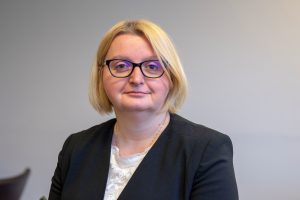
KATARINA IVANKOVIĆ KNEŽEVIĆ
Since September 2018 Katarina Ivanković Knežević is a Director for Social Rights and Inclusion in the Directorate General for Employment, Social Affairs and Inclusion. Her area of activity is modernisation of social protection systems and wider social policies fostering social and labour market inclusion, through the implementation of the European Pillar of Social Rights and other relevant social policies of the European Union. She is leading a work on disability and inclusion and is also DG EMPL Equality Coordinator. Before joining the European Commission, she was a State Secretary in the Ministry of Labour and the Pension System of the Republic of Croatia, in which she was responsible for the management and implementation of the European Social Fund and other EU instruments aiming at human resources development. For the last 20 years her professional interests are human rights and gender equality, social and employment policies.
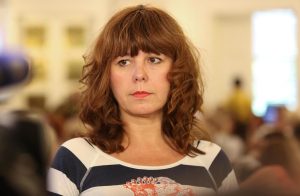
TATJANA KATKIĆ STANIĆ
Tatjana Katkić Stanić is a social worker with a total of 30 years of work experience in the fields of children’s rights and child protection in the social welfare and justice systems, a doctoral student at the Faculty of Law in Zagreb – Social Work Study Center.
She began her professional training as a social worker – a practitioner in daily work with children, young people and families at risk, and continued in management positions from the Head of the Center for Social Welfare and the manager of the Correctional Institute, to the Head of the policy sector for children, youth and family and promotion professional work, and Director of the Directorate for Social Welfare and Social Work.
In my professional work, I try to combine practical and management experience, implementation knowledge and skills acquired at the level of decision-makers in the field of social policy in order to improve practice and advocate for better protection through strategic and policy proposals in realizing the rights of children and young people, especially as member of the Steering Committee for Children’s Rights and member of the expert group for rights and the fight against violence against children in the Council of Europe.
In long-term cooperation with UNICEF, it strives to improve the child protection system through coordination and participation in various programs and projects “For a stronger family”, Progress, Phase III of the EU Guarantee for Every Child, with the aim of improving services and interventions in the field of child protection, and prevention of poverty and social exclusion.
She conducted training for the social welfare system, judiciary and police in the field of domestic violence, child, youth and family protection and interdepartmental cooperation in the field of child protection.
She is a licensed family mediator and mediator in cases of international child abduction, implementer of psychosocial treatment for perpetrators of domestic violence and group treatment of children and young people for the prevention of behavioral problems.
In the period from 2004 to 2009, she was the president of the Croatian Association of Social Workers and a member of the Executive Board of the European Association of Social Workers.
Leader and member of working groups for drafting laws, strategic documents, protocols and guidelines in the field of child and youth protection and National Coordinator of the EU Guarantee for Every Child.
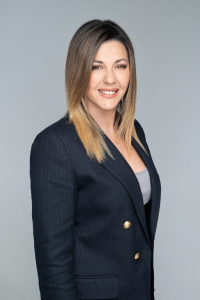
SOFIA ZACHARAKI
Sofia Zacharaki was elected as a member of the Hellenic Parliament for Nea Demokratia in the June 2023 Greek Legislative Election, representing the East Attica constituency.
On June 27, 2023, she was appointed Minister of Social Cohesion and Family Affairs in the Cabinet of Kyriakos Mitsotakis.
She was appointed Deputy Minister for Tourism Education and Special forms of Tourism on January 2021 and served until May 2023.
She previously held the office of Deputy Minister of Education and Religious Affairs from July 2019 to January 2021.
Before her appointment, she served as the spokesperson for Nea Demokratia, the then leading opposition Centre-right party in Greece, an EPP member party.
Previous to that and for more than 2 years, Sofia was the party’s deputy spokesperson. Prior to that, in 2012 until 2014 she was the European and International Affairs advisor to the Minister of Development and participated in the preparation of the Greek Presidency of the Council of the European Union.
She is a State Department programme alumna. In 2015 she represented Greece in the International Leadership Visitor Programme in the USA in the field of “The role of Private Public Partnerships in restructuring economies”.





